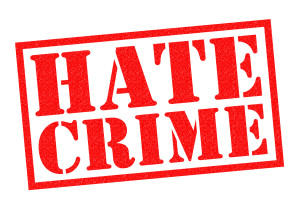
Minnesota lawmakers are moving forward with a bill that would increase penalties for individuals found guilty of a hate crime.
The Senate Judiciary Committee passed a measure on Friday that would increase the maximum penalty for assaults by 25 percent if a judge or jury deems the attack was motivated by bias, like a person’s skin color, race or religion. The measure was championed by Senator Ron Latz who said the bill was a response to a recent attack on a Somalian woman at a Coon Rapids Applebee’s restaurant. A fellow patron allegedly attacked the woman because she was speaking Swahili. The woman was charged with third-degree assault but not a hate crime, because the maximum penalty for a hate crime is a gross misdemeanor. Latz wants to ensure targeted crimes receive adequate punishment.
“A crime that is motivated by bias is uniquely corrupting to our society,” Latz said. “It’s an offense not only against the individual victim of the physical assault, but it’s an offense against all of the community.”
New Hate Crime Bill
The new hate crime measure only involves felony assaults at the moment, but legislators want to look at reviewing the entire scope of the law in the near future. Although the measure passed and is being referred to the Senate Finance Committee, some senators feel that the change falls short of addressing the real issue. Senator Scott Newman said that the change “elevates” the victim of a hate crime to be more important than victims of other assaults motivated by things like vengeance or anger.
“What we’re really supposed to be doing is treating everybody the same,” he said. “If we’re going to enhance penalty in one, why do we not enhance the penalty in another?”
Latz countered, saying hate crimes go beyond the individual and affect society as a whole, and thus they should be held to a higher degree.
“When the assault is because of a perception that is much broader in concept, in this case race or nationality or skin color, to me that’s a much more egregious kind of conduct,” he said, “and we ought to make a special statement as a society that it’s not appropriate.”
The bill still has a few hurdles to climb before it would make its way into law.





